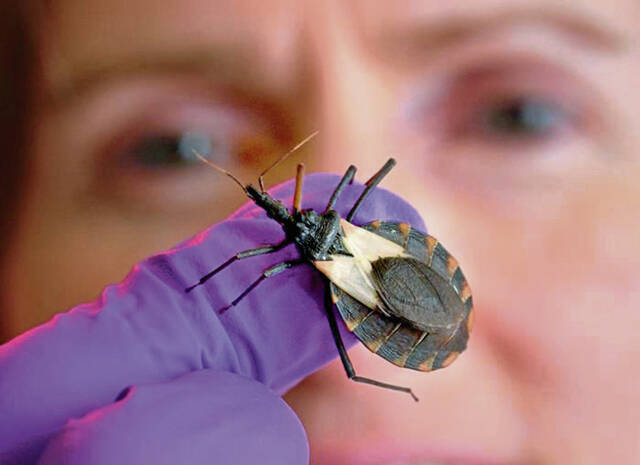Chagas disease, also known as 'kissing bug' disease, is silently spreading across the United States, posing a significant public health concern. The Centers for Disease Control and Prevention (CDC) confirms its endemic status, marking a worrying rise in infection rates. This potentially life-threatening illness is transmitted through the bite of triatomine bugs, aptly nicknamed 'kissing bugs' due to their preference for biting faces. These insects carry the parasite *Trypanosoma cruzi*, which is found in their feces. Infection occurs when the parasite enters the bloodstream through the bite wound or mucous membranes.

The World Health Organization estimates over 100 million people globally are at risk of contracting Chagas disease. In the U.S., at least eight states – California, Arizona, Texas, Tennessee, Louisiana, Missouri, Mississippi, and Arkansas – have reported confirmed cases. The CDC notes that kissing bugs are naturally found in the southern half of the country and have been identified in 32 states, often inhabiting rural areas and the cracks and crevices of poorly constructed homes. Furthermore, pets, particularly dogs, can act as reservoirs for the parasite, with growing evidence of canine infections in states like Texas and California.
Currently, there are no vaccines or preventative drugs for Chagas disease. However, two anti-parasitic medications are available in the U.S. for those diagnosed with the infection. Mitigation strategies involve using preventative measures such as anti-flea and tick medications for pets. When traveling to areas with known kissing bug populations, the CDC advises minimizing contact with these insects, often found in poorly maintained structures.
Chagas disease unfolds in two phases: acute and chronic. The acute phase, often asymptomatic, can manifest with mild symptoms like fever, fatigue, body aches, or eyelid swelling. Prompt treatment during this stage is crucial. Untreated, the disease progresses to the chronic phase, potentially lasting a lifetime. A significant percentage of untreated individuals (up to 30%) may develop serious complications, including heart failure, or enlargement of the esophagus or colon. Tragically, the disease is often fatal by the time noticeable symptoms appear, emphasizing the critical need for awareness and prevention.
Understanding the risks and taking preventative steps is essential to curb the spread of Chagas disease and safeguard public health. The widespread availability of information on prevention and early detection is crucial in minimizing the impact of this growing health threat.
---
Originally published at: https://triblive.com/local/regional/kissing-bug-disease-on-the-rise-in-u-s/
